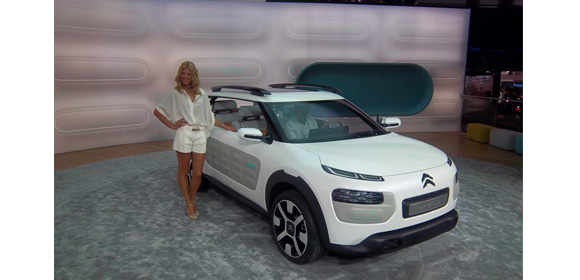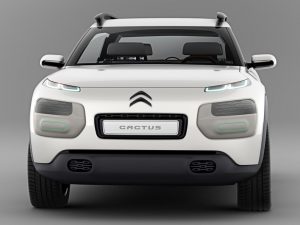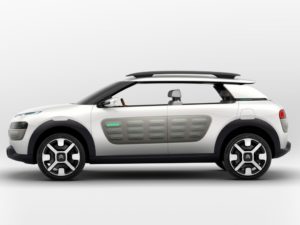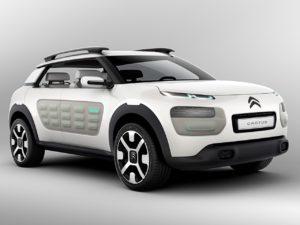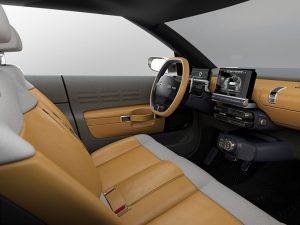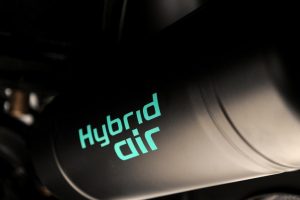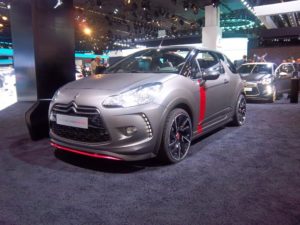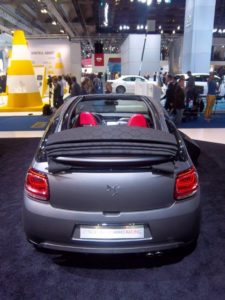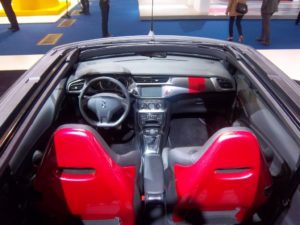Citroën is in a rather prickly predicament. It needs a rival to the VW Golf and the Ford Focus family hatchbacks. The Cactus concept shown at Frankfurt is loosely based on the C-Cactus concept first shown at Frankfurt in 2007 but, according to Mark Lloyd, the range manager responsible for shaping future Citroën products, there’s a shift in emphasis towards design, comfort and simplicity of use as well as value for money. “The C4 Cactus is aimed at reducing the stress and complexity of living with a car,” said Lloyd during a sneak preview of the car in Paris. But can customers embrace Citroën’s approach?
The body features Airbump, a system of air-filled blisters on the side of the car and around the headlights which replaces the function a traditional bumper. According to Lloyd, these “provide a graphic and functional element to the production car”. Apparently, Citroën has spent three and a half years developing it, during which it was tested by bombarding a mock-up with shopping carts laden with car batteries. We wonder how long the Airbump protection will hold up to the reality of climate exposure? And will Airbumps deteriorate by people ramming them and poking just to see how they hold up?
A conventional gear shift is replaced by three large buttons, one each for Drive, Neutral and Reverse (although there will be a manual option). Most of the car’s functions are controlled via a central touchscreen.
To maintain the clean appearance, the passenger airbag is located in the roof. It has a front bench seat with integrated seat belts. Conventional door handles are replaced with touch pads atop the doors.
The Cactus is 421cm in length (2cm shorter than a Golf), with a wheelbase of 261cm. About 90 percent production ready, it is a bold move from the five-door hatchback norm that dominates the big-selling C-sector in Europe.
The Cactus also sports a “hybrid air” badge, thus leading us to believe it could be the first Citroën to offer such drivetrain technology when it goes on sale next summer.
————————–
Citroën also showed a new upmarket twist to its DS3 Racing model. While the DS3 has been a success, the DS Racing has been penalized by a hefty price of 32,490 euros. To justify the premium cost, a Cabrio version was shown offering matte gray paint, purple striped doors and front spoiler. The dark convertible top is adorned in a pattern of DS based logos.
Inside, the DS3 Cabrio Racing acquires specific bucket seats, dressed in a leather watchband texture and a carmine colour shroud.
The DS3 Cabrio Racing is only 25 kg heavier than the closed version, thereby preserving performance and handling. It retains the 1.6L 202 hp engine of the normal DS3 Racing.
If Citroën gives the green light to production, the DS3 Cabrio Racing could be in showrooms as soon as the spring of 2014.
